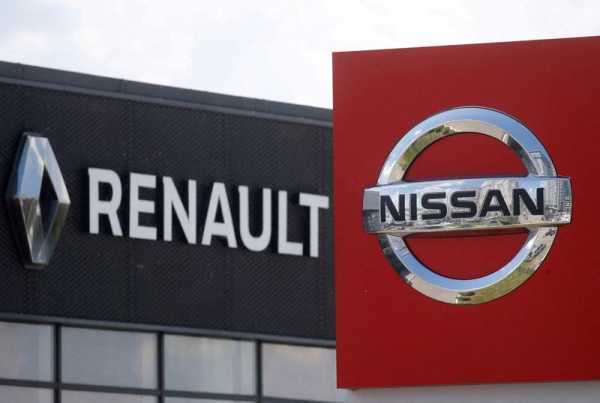From boom to bottom and now big change: Renault and Nissan reshape alliance
PARIS/TOKYO (Reuters) – French carmaker Renault and its Japanese partner Nissan on Monday agreed to a sweeping reset of their two-decade alliance that will put them on equal footing.
The partnership, which has grown to include junior member Mitsubishi Motors, was founded in 1999 and long dominated by former Renault and Nissan top executive Carlos Ghosn. It gave Nissan a 15% stake in Renault, on a par with the French state, but no voting rights.
By contrast Renault – which at the time was rescuing Nissan – took a 43% holding in its Japanese ally, giving the French a dominant role that has long been a point of contention.
The alliance was thrown into turmoil following Ghosn’s arrest on financial misconduct charges in late 2018 and his subsequent ouster as alliance chairman. The following is a timeline of key events in the alliance’s history. 1996Ghosn joins Renault as executive vice president as the firm struggles with falling profitability. The next year, he unveils a 20 billion franc cost-cutting plan, reviving his reputation as “Le cost killer”. Renault’s profitability jumps three-fold by the end of 1998. 1999Renault in March comes to the rescue of debt-laden Nissan, which had lost money for three years in a row. Ghosn reveals his “Nissan Revival Plan”, targeting a return to profitability in the 2000 financial year.
After cutting 21,000 jobs, or 14% of the workforce, shutting some plants and overhauling Nissan’s corporate structure, Nissan hits its goals a year ahead of schedule. Ghosn is feted as a business celebrity in Japan.
2000Ghosn becomes CEO of Nissan. By the end of 2000, Nissan is contributing roughly half of Renault’s annual net profit. 2002Nissan announces its “Nissan 180” three-year plan, targeting an increase of 1 million vehicles in global sales by 2005. 2005Nissan misses its sales target, and announces a new three-year plan. Ghosn becomes president and CEO of Renault. 2008Nissan again fails to meet its main financial targets. The automaker announces another five-year plan but then scraps it due to the financial crisis. 2013
Renault and Nissan announce a common plan for low-cost development and manufacturing of vehicles. The next year, the two groups converge more functions, targeting 10 billion euros ($11 billion) in annual savings by about 2022.
2016Nissan takes a controlling stake in Mitsubishi. Ghosn becomes chairman, making him chairman of all three partners. 2017Both Nissan and Renault post record operating profits, though Nissan still falls short on some targets. The alliance together sells more than 10 million vehicles globally, making it one of the world’s biggest automakers. 2018Ghosn is arrested in Japan on charges of underreporting his salary for more than a decade. He is accused of other crimes including using Nissan funds for his own purposes. Ghosn, who has denied wrongdoing, is fired as chairman of the alliance. 2019Nissan and Renault reel from the aftermath of Ghosn’s arrest. Both automakers appoint new boards as profits continue to sink.The alliance names a new chairman, Michelin veteran Jean-Dominique Senard, while Makoto Uchida becomes Nissan’s new chief executive.
Tensions escalate after Renault attempts to tighten capital ties with Nissan, a move rebuked by the Japanese automaker.
On Dec. 29, Ghosn escapes from Japan onboard a chartered flight. He eventually arrives in Lebanon, his childhood home, where he is barred from leaving the country but remains protected from extradition. 2020With the COVID-19 crisis triggering losses at both car makers, Renault secures a state-backed loan worth 5 billion euros to shore up its liquidity. Luca De Meo becomes the French group’s CEO in July.Alliance Chairman Senard rules out any merger of the carmaking partners, saying they don’t need to combine to be efficient. 2022De Meo announces plans to split Renault’s electric vehicles (EV) business from its combustion engine operations.
On Oct 8-9, media reports say Nissan wants Renault to cut its stake to 15%, in exchange for investing in Renault’s EV unit.
Technology-sharing emerges in October as a sticking point between the two companies in the talks, people familiar with the negotiations said.
Renault later provides proposals to address those concerns, and a deal is announced on Jan. 30.
(Reporting by Reuters bureaus; Editing by David Dolan and Jamie Freed)

